Rise & Fall: Civilizations at War Profile Preview - The Romans
In our final civilization preview, we take a look at the mighty Romans in this soon-to-be-released real-time strategy game.
It's been a long road for Rise & Fall: Civilizations at War, a real-time strategy game set in the ancient world. Though the game was originally developed by Stainless Steel Studios, work on it shifted to Midway after Stainless Steel went under. Still, it appears that Midway picked up the pieces successfully, and Rise & Fall is now done. With the game due out next week, we finish off our look at the four civilizations in the game with a preview of mighty Rome. Gladiator, Colosseum, Julius Caesar--all these words conjure up images of a past era. Rome's influence on Western culture and society has left an indelible imprint. The Romans pioneered lasting forms of art, architecture, government, and warfare.
Heroes
Julius Caesar (100 BC to 44 BC): The greatest of the Roman leaders, Julius Caesar created the groundwork that laid the foundations of the Roman imperial system. Caesar was arrogant, ruthless, and a master politician. As a young man, Caesar was kidnapped by pirates while journeying to Rhodes. Initially, the pirates demanded 20 talents for Caesar's release, but Caesar ordered them to ask for 50 talents because of his preeminent stature, and he repeatedly told the pirates that they would face horrible retribution for their actions.
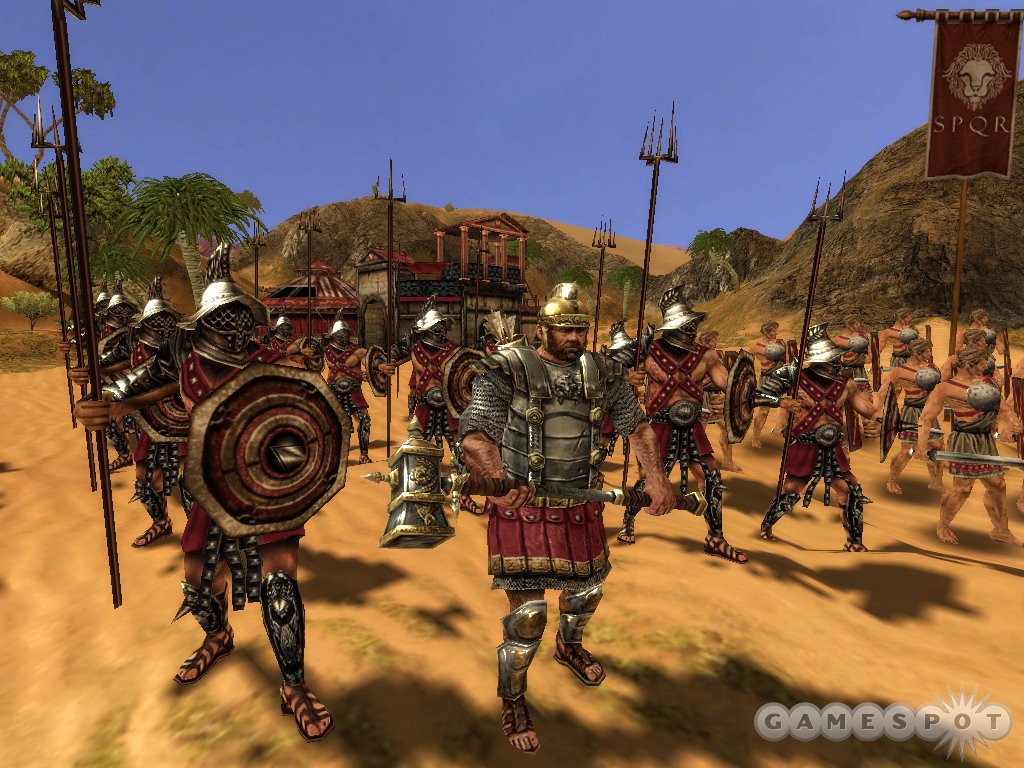
The pirates ignored him, and once Caesar was freed, he had the pirates hunted down and crucified. As a sign of mercy, though, he had their throats cut, thus slightly alleviating their suffering. Throughout his life, Caesar treated all enemies of Rome in such a manner. He waged perpetual war against the Western foes of Rome, including an invasion of Britain in 55 BC, where he personally led his troops into battle. All told, Caesar conquered 800 cities and 300 tribes, sold over one million men into slavery, and killed another three million. By all accounts, he was a brilliant tactician.
Caesar eventually rose to become the absolute power in Rome, although for political reasons, he rejected the designation of monarch. A short time later, a number of rogue Roman senators, many of whom had personally received favors of Caesar, assassinated him.
With his mighty Blade of Mars, Julius Caesar leads his troops directly into battle, cutting a swath of destruction through enemy soldiers. Once Julius Caesar reaches the enemy's stronghold, he can personally direct catapult fire that will bombard any target he designates. This barrage will quickly annihilate the enemy, paving the way for the Roman infantry. As Julius Caesar levels up, this artillery barrage becomes even more powerful. Julius Caesar is an exceptional, all-around hero. It will take a massive, concerted effort on the part of the enemy to bring him down. He has no weaknesses.
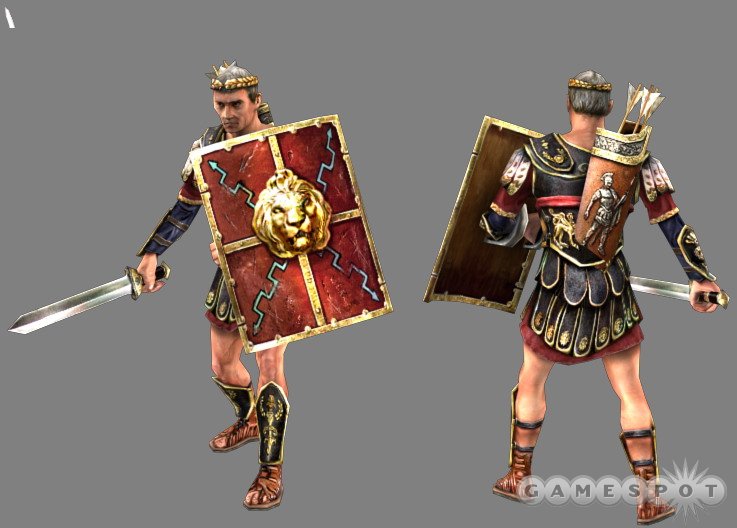
Germanicus Caesar (15 BC to AD 19): A large and intimidating figure, and fierce warrior, Germanicus Caesar was extremely popular with the Roman people because of his success in defeating the Germanic people. Although the Roman legions rebelled when Tiberius was named emperor instead of Germanicus in AD 14, the loyal general put down the rebellion and accepted his position as commander of the forces in Germania.
Over the next two years, Germanicus waged a brutal campaign against the Germanic people. He conquered all of the Germans east of the Rhine, and in the Battle of the Weser River, he delivered a devastating blow against the German tribes, which were led by Arminius. Several years earlier, Arminius had ambushed and annihilated three Roman legions in the Battle of the Teutoburg Forest. This time, it was Rome that would emerge victorious. Germanicus lured Arminius into an open confrontation and soundly defeated him, capturing Arminius's wife, Thusnelda, in the process.
Germanicus wished to pursue the remnants of the German army farther west, but Tiberius ordered him to return to Rome. Always the loyal servant, Germanicus returned to Rome. On the way back, Germanicus found the remains of the 17th, 18th, and 19th Legions, who had been butchered several years before. Showing that he was truly a man of great honor, Germanicus buried the men with the highest honors that Rome could bestow. Despite his many heroic victories and extreme popularity with the Roman people and military, the treacherous and jealous Tiberius had Germanicus murdered in AD 19.
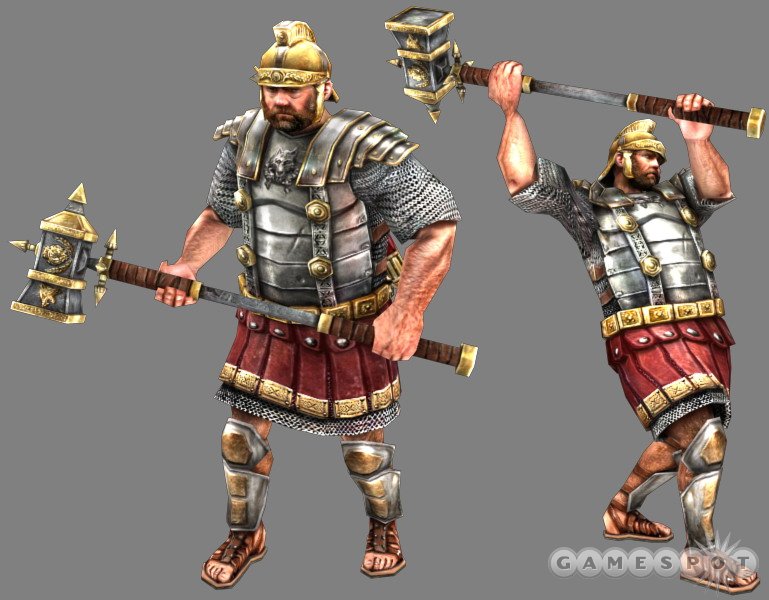
Germanicus was one of Rome's mightiest warriors, and in battle he used his two-handed battle-axe to cut his enemies into pieces, leaving behind bloodied remains for the carrion buzzards. Germanicus is so feared on the battlefield that just the sound of his ferocious battle roar is enough to strike terror into the hearts of enemy soldiers, causing them to flee from the battlefield. With each new level, Germanicus' battle roar becomes even more terrifying and powerful. Germanicus can absorb an extreme amount of damage, drawing attention away from the more vulnerable units in his army.
Units
Imperial Praetorian: Trained until they are masters of all forms of sword-based combat, these elite swordsmen specialize in attacking and conquering outposts. They are the core of the Roman legions.
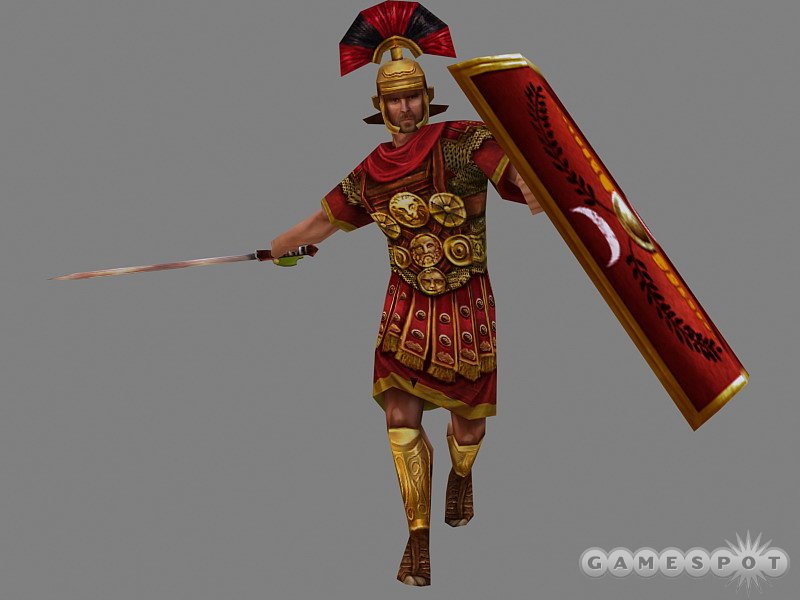
Imperial Triarii: Although they are more than capable attackers, the Imperial triarii specialize in forming a solid line of defense. Their long spears make them extremely effective at eliminating enemy cavalry.
Imperial Archer: Seeking to honor the god Apollo, Imperial archers pride themselves in being the best archers on any field of battle. They are deadly when attacking spear infantry and formations. Their primary weakness is enemy cavalry.
Imperial Knight: The most elite Roman warriors are given the honor of becoming an Imperial knight. Highly trained and deadly, Imperial knights raid enemy positions and are perfectly equipped to outflank the enemy.
Trireme: This massive ship is the largest in the Roman fleet and provides essential support in operations around the Mediterranean. An important part of any extended military campaign, the Trireme pulls double duty as both a heavy siege weapon (when outfitted with a naval onager) and as a floating barracks.
Centurion: Only the most vicious warriors in the Roman army are allowed to become centurions. They can quickly overpower enemy infantry and fight their way to the rear of enemy formations.
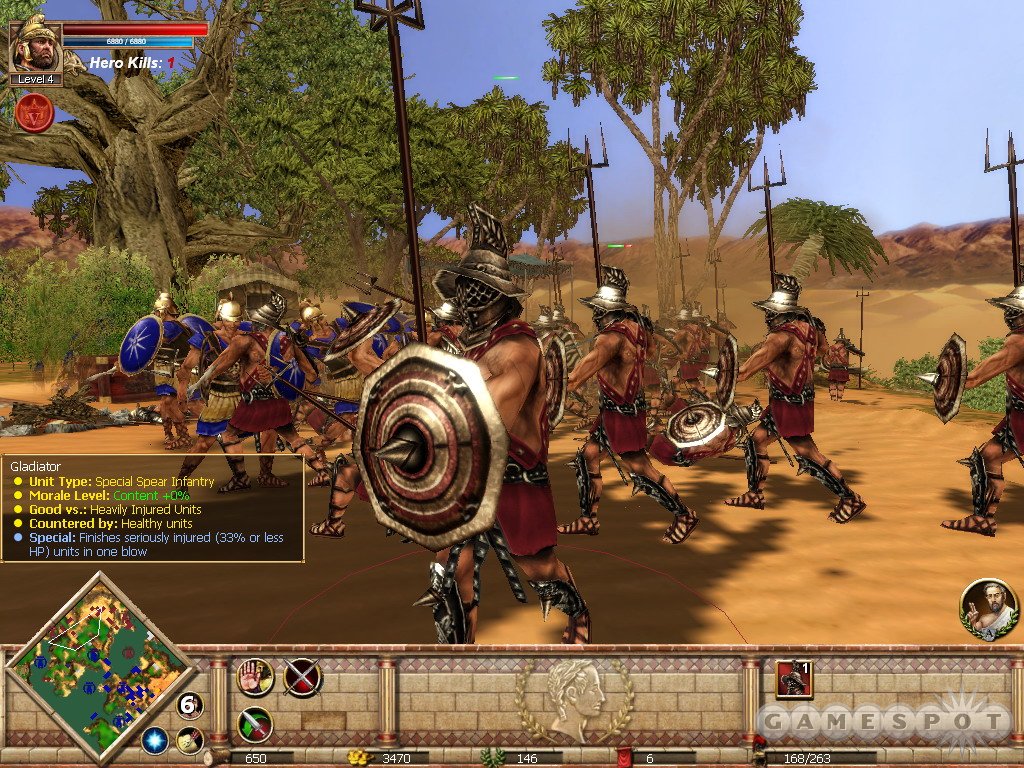
Gladiator: Exquisitely trained in the fine art of finishing off wounded enemy soldiers, the gladiator roams the battlefield in search of prey. Once an injured soldier is located, he is quickly dispatched with a single blow.
Ballista: The first part of a devastating one-two punch, the ballista bombards enemy structures and formations with catapult fire. Once the enemy is softened, infantry and gladiators are deployed to finish off any survivors.
Advisors
In Rise & Fall, your advisors are your trusted friends and comrades, each of whom provides you with special bonuses and abilities. Instead of purchasing upgrades to unlock new technologies, you will hire experts in each field.Ambassador: The reach of the Roman Empire extends far and wide, and the Roman army is feared among all nations. When the Roman ambassador comes calling, it is wise to greet him with gold.
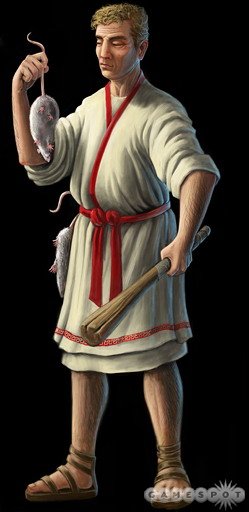
Benefit: The player receives an allotment of gold once every minute.
Rat Catcher: Ancient Romans knew that rats were not only a nuisance and destructive to food supplies, but also the spreaders of disease. The rat catcher was paid handsomely for the job of keeping the rat population down.
Benefit: The player's army gains a morale bonus.
Got a news tip or want to contact us directly? Email news@gamespot.com
Join the conversation